Khufiya: Vishal Bhardwaj's Spy Saga Is Sweeping In Scope, But Runs Out Of Steam
This is #CriticalMargin, where Ishita Sengupta gets contemplative over new Hindi films and shows. Here: Khufiya on Netflix.
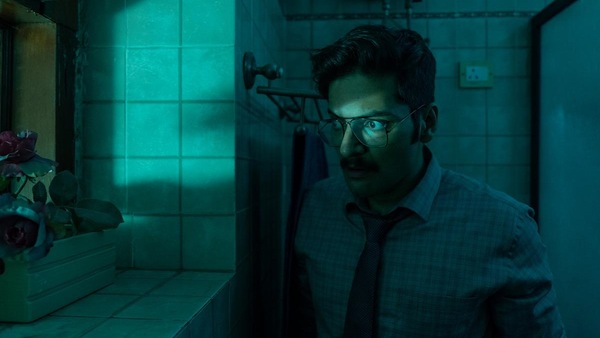
Last Updated: 01.12 PM, Oct 05, 2023
This column was originally published as part of our newsletter The Daily Show on October 5, 2023. Subscribe here. (We're awesome about not spamming your inbox!)
***
VISHAL BHARDWAJ’s Khufiya, his first feature film in five years, is a lot of things. It is an espionage thriller unfolding against a turbulent political backdrop. It is a story about a woman coming to terms with herself through the demands of her profession. It is about a mother willing to stake everything for the sake of her child. It is about two women helping themselves by helping each other. It is also about a man who believes he is a patriot even when his actions might make him a traitor. What Khufiya is not, however, is coherent, compelling, and a film that rewards investment.
Bhardwaj has a thing with adaptations: he makes them better. The filmmaker’s towering career rests on taking literary materials and infusing them with a reading that did not exist before. He unlocks meanings in texts that are invisible to the naked eye, mines metaphors steeped in life which mirror the larger machinations of living. Take any of his Shakespeare adaptations for instance and his merit is clear. His breakout work Maqbool (2003) took a gory ambition tale about kings and kingdoms and configured it as a tragic love story. In Omkara (2006), he rooted a tragic love story within a stratified society that is divided beyond repair. In Haider (2014) he depicted a personal revenge tale as a convincing allegory of a social tragedy.
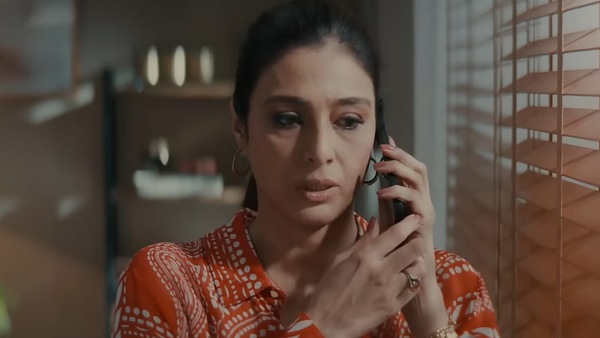
In his work, the personal and the social are bridged by the turmoil of politics. This makes Khufiya — an adaptation of Amar Bhushan's espionage novel Escape to Nowhere (2012) — a natural extension of his oeuvre. After all, a large part of Bhardwaj’s filmography straddles the thin line between the visible and the invisible; it is haunted by ghosts who emerge from the snow and humans who disappear in plain sight.
Bhushan’s book is based on a joint secretary at RAW called Ravi Mohan who betrayed his agency in 2004 and vanished into thin air despite being under constant surveillance. It is later discovered that he was protected by the United States’ Central Investigation Agency (CIA). Escape to Nowhere delves into that while foregrounding the manner in which several officials at RAW wanted to bury the matter to preserve the diplomatic ties between the two nations.
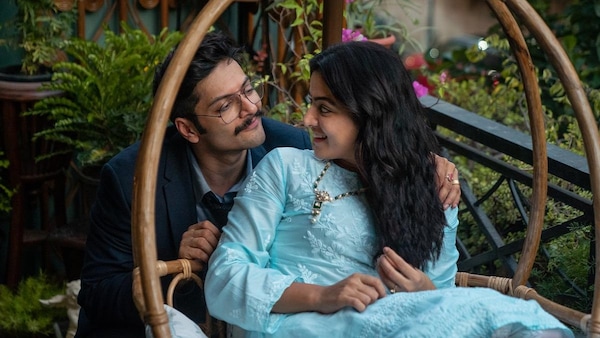
This alone gives Bhardwaj plenty to work with. The elements are all there. Khufiya opens with a stunning silhouette shot (Farhad Ahmed Dehlvi is the cinematographer) and Tabu’s voice. Both fit right into the filmmaker’s universe. The person is revealed to be Heena Rahman (an electric Azmeri Haque Badhon) and the place is Bangladesh. In his retelling, the filmmaker gives certain political pointers — in the aftermath of the 1999 Kargil War, the intelligence agencies of both India and Pakistan are trying to influence the election of Bangladesh.
The film presents this information at the outset. In hindsight it feels slightly odd because nothing about Khufiya suggests this. In fact, the broader picture always hangs at the doorstep as the filmmaker focuses on the characters. They become metaphors for the implied raging political chaos. For instance Krishna Mehra aka (Tabu), a RAW officer from India, and Rahman, a spy from Bangladesh are stand-ins of their nation state and their dalliance becomes a telling analogy of two countries which belonged as one. This style is distinctly Bharadwaj. The meaning in his films forever resides in the interstices. But they also transport effortlessly. With Khufiya, most of it gets entangled, resulting in sweeping storytelling that loses most of its steam till the narrative concludes.
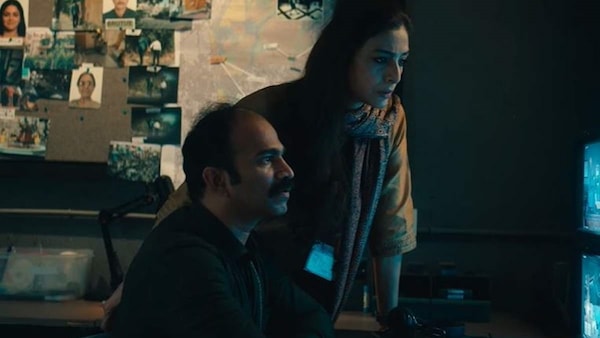
When an operation by India gets compromised in Bangladesh, officials at RAW start suspecting one of their own. Their gaze falls on Ravi Mohan (Fazal), an officer who lives beyond his means. He lives in Delhi with his family: his mother, wife Charu (Wamiqa Gabbi), and son. The agency decides to keep Mohan under constant surveillance to understand the extent of the treachery. And the responsibility to find the source of this falls on KM, a divorced woman who struggles to give time to her son.
Khufiya has some fun with the setting. Bharadwaj, who is yet to adapt Shakespeare’s Julius Caesar, freely uses names from the play as part of the covert operation at hand, which is cheekily called Operation Brutus. Thus, Mohan becomes Brutus, the betrayer in the main text who stabs his friend and Roman ruler Caesar from the back (in this case, the agency) and his wife Charu is Portia, Brutus’ spouse who had no idea about the conspiracy he was hatching. There is also a nice touch in the way the film depicts the godman, the subplot of which culminates in a hilarious moment when an old woman (a terrific Navnindra Behl), who has tricked the world only to be tricked by him, screams on meeting the women she had shot.
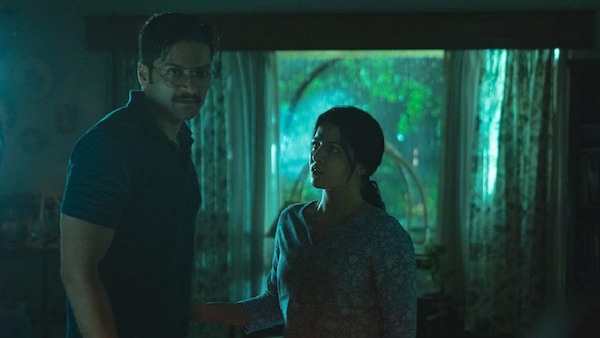
But in an outing with a runtime of over 157 minutes, these remain stray moments which do not add up in the final picture. Much like his previous work, Charlie Chopra & The Mystery Of Solang Valley, even Khufiya is imbued with a gaze that feels too generic. Take for instance the way Bharadwaj portrays a bored housewife, who he envisions to be a manic pixie dream girl, prone to breaking into impromptu dances set to old Hindi songs while wearing almost nothing. There is a derivation in the way the filmmaker presents her, right from the fact that she is named Charu (after Satyajit Ray’s Charulata, except someone else is looking at her with binoculars) to her doing what she does later. Watching her is accompanied by a nagging idea that the character will become more than who she is shown to be, but the moment never arrives.
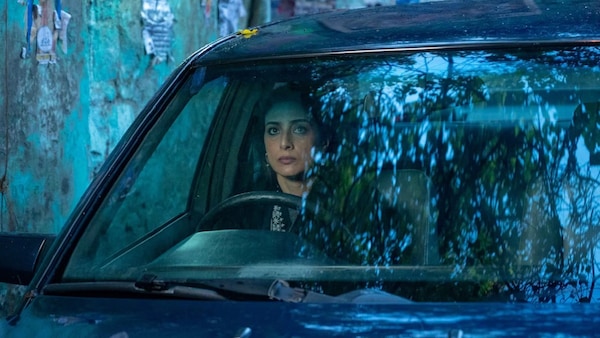
This feeling of dull dissatisfaction is a constant companion while watching Khufiya. At all times, the film feels like a ticking bomb waiting to explode. A dinner table scene towards the end for instance, or even the performances and the characters. Fazal is as good as he can be in a role that has one important line and nothing beyond to frame his personhood. Even Tabu’s character feels like an extension of it. As Krishna Mehra, a woman coming to terms with her identity, the actor always feels like one scene away from stealing the show. But, to reiterate, the moment never arrives. Khufiya is that rare Bharadwaj film where the personal and social collapse into one another, leaving behind a limp political crisis.
(Disclaimer: The views expressed in this column are those of the author and do not necessarily reflect the official policy or position of OTTplay. The author is solely responsible for any claims arising out of the content of this column.)
